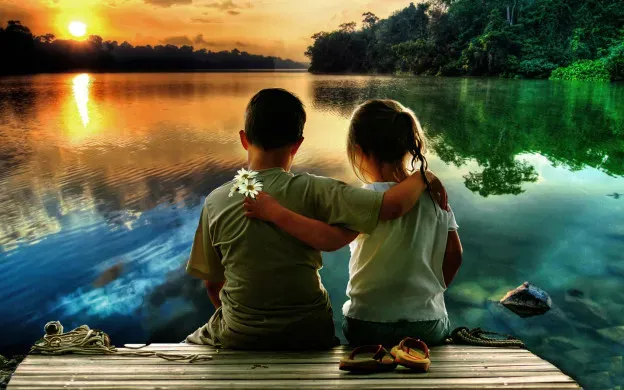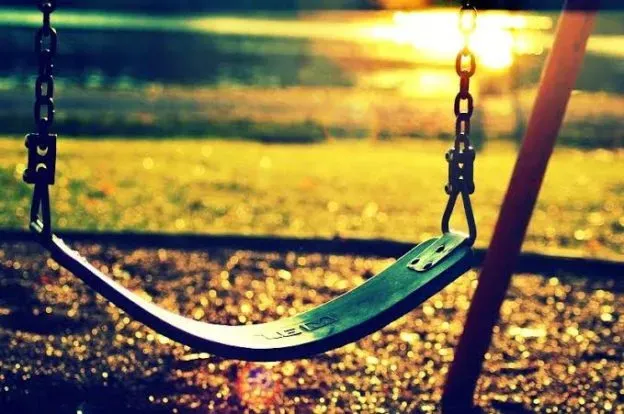This question—"Can a boy and girl be friends forever?"—has echoed across generations, cultures, and conversations. It's a question that is both deeply personal and universally curious. Some believe firmly in the possibility of lifelong platonic friendships between opposite sexes. Others, shaped by personal experience or societal norms, remain skeptical. But what does human psychology say? And what does life experience teach us?
The Journey from Innocence to Introspection
In childhood, friendships are formed with delightful innocence. Boys and girls play, laugh, and grow together without the weight of societal expectations or hormonal influences. These relationships are unfiltered, driven by common interests and a shared sense of wonder. But as adolescence dawns and the mind and body undergo dramatic transformations, friendship often finds itself at a crossroads.
Hormonal shifts during puberty lead to new emotional landscapes. Feelings of affection or attraction may naturally arise, even within a previously platonic bond. This doesn’t necessarily mean the friendship must end, but it does mean the nature of the relationship is likely to change. Navigating this phase with honesty, maturity, and mutual respect is essential.
When Friendship Meets Love
Some friendships evolve into romantic relationships. This transition can be beautiful, often rooted in deep understanding, comfort, and emotional safety. However, it is critical to recognize when the emotion is mutual versus when it's one-sided. Unrequited love, when hidden under the guise of friendship, often breeds confusion, pain, and resentment.
But what about those rare friendships that choose to stay platonic despite the emotional tides? These individuals consciously decide to protect the sanctity of their bond by acknowledging and moving past romantic feelings. According to psychologists, emotional intelligence plays a significant role here. The ability to manage one's emotions, understand the other person's boundaries, and prioritize the relationship's longevity can help preserve a healthy friendship.
The Unseen Layers: Jealousy, Possessiveness, and Life Transitions
Friendships between a boy and a girl often face tests that go beyond love. One of the most common is the feeling of jealousy or possessiveness when one person forms a romantic relationship outside the friendship. These emotions, though natural, are often hard to confront. Psychologists refer to this as "emotional dissonance"—where what we feel doesn’t align with what we believe we should feel.
A friend might think, “I’m happy for them, but why do I feel sidelined?” This isn’t always romantic jealousy. It can be a deep sense of loss or a disruption in emotional routine. Acknowledging these feelings without guilt is key. Human beings are wired for connection and when emotional connections shift, it can cause distress.
Life continues to challenge the strength of friendship. Professional demands, relocations, marriages, and parenting can pull people in different directions. Priorities shift. Time becomes scarce. What once was a daily conversation now becomes an occasional message or memory. The psychological concept of "cognitive load" explains why maintaining multiple emotionally intense relationships becomes difficult with increasing life responsibilities.
And then comes marriage—a societal milestone that often redefines interpersonal boundaries. In many cultures, close friendships with the opposite sex after marriage are viewed with suspicion. Even if the life partner is understanding, the dynamics inevitably change. Social expectations, emotional availability, and the need for clarity in roles create limitations on how close such friendships can remain.
Beyond Labels: Redefining Connection
So, can a boy and girl be friends forever?
The answer is yes—but with conditions. Not conditions set by society, but those rooted in human behavior and emotional development. Deep platonic friendships are possible, but they require:
- Clear communication of boundaries
- Mutual respect for each other's emotional and personal space
- Mature emotional intelligence to deal with conflicts, feelings, and life transitions
- Honesty in acknowledging the emotional shifts over time
Love Masquerading as Friendship
In today's world, it’s not uncommon for individuals to use the term "friendship" to veil romantic intent. This, consciously or subconsciously, dilutes the sanctity of true platonic bonds. Authentic friendships demand purity of intention. If romantic feelings exist, it's respectful—and healthier—for both individuals to acknowledge them rather than hiding behind a mask of friendship. This honesty not only respects the other person’s emotional boundaries but also safeguards personal integrity.
Friendship is not a placeholder for love. It is a form of love on its own—one that is often more resilient, forgiving, and enduring. Psychologists often refer to friendship as a "safe haven attachment"—a secure emotional space where individuals can be their truest selves without fear of judgment or rejection.
A Final Thought
The traditional ladder of connection—"Hi, can we be friends? Can we be best friends? Can we be lovers?"—needs to be revisited. Maybe we need to remove the ladder altogether. Let relationships be what they are meant to be—authentic, fluid, respectful, and above all, human.
True friendship between a boy and girl is not about resisting love, but about choosing a connection that transcends definitions. It may not always remain the same in proximity, but its emotional footprint can indeed last forever.
To those who preserve such friendships through life’s many seasons—kudos. For the world needs more examples of emotional maturity, honest connections, and friendships that celebrate—not compete with—life’s changing stages.




